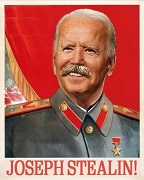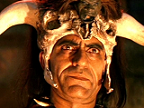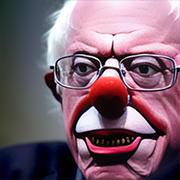|
tanglewood1420 posted:Just lost as Dukakis vs Bush Sr. in 1988 - 279 to 259 though so put up a good fight considering the real life results. Despite picking John Glenn as a running mate and campaigning there several times I lost in Ohio 50% to 48%, which would've swung it for me. I went for a different approach. 
|
|
|
|

|
| # ? May 10, 2024 09:48 |
|
i won as mitt romney. visited only florida, ohio, virginia, and colorado, said a mix of strong and moderate poo poo, won all four states plus the ones romney actually won. i am proud looking at the results it seems like someone won 1968 as wallace. that's probably pretty hard to do
|
|
|
|
Thank you for voting. It’s been four years since the beginning of the First American Civil War. As fighting rages across the Midwest, polling booths have been closed. Many states, including the battleground state of Ohio, have temporarily abolished the popular vote until fighting subsides. Despite these undemocratic reforms, His Elective Majesty James G. Birney has only narrowly won re-election, due largely to vote splitting between Clay and Polk. Though Thomas Morris has been technically elected Vice President, his untimely death has caused the Electoral Vote to fracture, resulting in no winner. The rump Senate is expected to pick Morris’s replacement when they convene. In other electoral news, President John C. Calhoun of the Confederated States of America has been killed in a duel by the old General Andrew Jackson. Though an opponent to Birney’s radical abolitionism, Jackson has apparently used the chaos to settle an old score and help restore the Union. The Republic of Texas, for one, is relieved that their petition for statehood was denied. RESULTS BREAKDOWN: Most Popular Ticket: James Gillespie Birney / Thomas Morris (Liberty) - 41 votes (50.6%) Henry Clay / Theodore Frelinghuysen (Whig) - 31 votes (38.3%) James Knox Polk / George Mifflin Dallas (Democratic) - 9 votes (11.1%)
|
|
|
|
ELECTION OF 1848 Click here to vote in the Election of 1848! Click here to vote in the Election of 1848!   In December of this year, President Polk is expected to deliver his final State of the Union address. The last four years have been hard, but transformative. Under the Polk administration, the United States has integrated Texas and acquired Oregon. He has kept his promises to lower tariffs and open up the federal government to common people. Communication has remained open with Congress and the Presidency is more powerful than ever. President Polk went into office with a focused agenda and may be one of the first men to accomplish every single one of his campaign promises. From a different perspective, Polk’s expansionism has opened up previously closed rifts between the North and South over slavery. As slaveowners look towards the Mexican cession to expand their peculiar institution, Northerners are becoming increasingly less open to compromise. With the slave states poised to outnumber the free states, Northern abolitionists in Congress have written the Wilmot Proviso, a bill that would formally block slavery in all the territory acquired during the Mexican-American War. This bill has outraged Southerners. In public, many accuse the North of radicalism while in private, some are considering secession. For Democrats and Republicans, both of whom are made up of a coalition of Northerners and Southerners, these growing tensions represent a problem. There is a real risk that if they do not contain, or at least conceal, these fiery attitudes that they will disappear from the national stage, replaced by radical regional parties like the Liberty Party and rapidly coalescing Southern Rights Party. Thus, both Democrats and Republicans have made de-escalating tensions a major focus. For Democrats, the party of the common man and direct democracy, the solution seems simple. Led by Lewis Cass, one of Jackson’s closest Northern allies, the Democrats have embraced the doctrine of popular sovereignty, a policy that would allow the residents of each state and territory to determine for themselves whether to allow slaves. Cass believes that this proposal will be satisfying for everyone because it takes the decision out of the hands of the federal government. However, Cass has been loudly condemned by Northern forces who argue that “popular sovereignty” will only lead to manipulation by Southern interests. Most prominent among these opponents is Martin Van Buren, who has led a mass walk-out of the Democratic Party and established his own “Free Soil” Party, one that it committed to containing slavery. Though Martin Van Buren has no expectation of victory, he hopes to act as enough of a spoiler to deny Cass the Presidency. The Whigs, on the other hand, have addressed the issue by ignoring it altogether. Instead of making a clear statement on slavery, the party has nominated yet another war hero of uncertain political affiliations, Zachary Taylor. Famous for his conduct during the Mexican-American War, where he defeated Santa Anna despite being outnumbered 2:1, Zachary Taylor is renown across the United States and internationally for his understanding of military affairs. In Taylor many see Jackson or Washington, a war hero who can navigate around regional divisions to bring about lasting change. Given Taylor’s complete lack of political experience, and his failure to even vote before this election, it remains to be seen whether this is a smart strategy for the Whigs. The lack of a platform has led the Democrats to hurl vicious personal attacks at Taylor, calling him “vulgar, uneducated, cruel, and greedy.” Whigs, including the little-known Abraham Lincoln and Rutherford B, Hayes, have been forced to defend their candidate within their communities and rebut the attacks. Elsewhere, social problems are bubbling towards the surface. For reasons yet unknown, alcoholism and cases of public drunkenness have skyrocketed. These incidents have had a devastating impact on communities across the country, destroying families and leading to increased violence, both on the streets and in the home. Some are blaming the chaos on Catholic immigrants, many of whom are from Ireland, and have set themselves towards converting or killing the masses.In Philadelphia, the Native American Party has convened for the first time to think up solutions to the “immigrant problem” and nominate a candidate for President. Though they have fallen in line with their old allies, the Whigs, many suspect that it is only a matter of time before these Know-Nothings try to carve out a place in American society like the Anti-Masons did a generation earlier. In addition, women are mobilizing increasingly for a role in political society. In Seneca Falls, the first gathering devoted to women’s rights was held with about 100 people in attendance. Though most dismiss the “women’s suffrage movement” as a fanciful Yankee dream, the movement is gaining steam within the Quaker and abolitionist community. Background: WHIG PARTY NOMINEES:  Presidential Nominee: Zachary Taylor
 Vice Presidential Nominee: Millard Fillmore
DEMOCRATIC PARTY CANDIDATES:  Presidential Nominee: Lewis Cass
 Vice Presidential Nominee: William Orlando Butler
FREE SOIL PARTY CANDIDATES:  Presidential Nominee: Martin Van Buren
 Vice Presidential Nominee: Charles Francis Adams, Sr.
LIBERTY PARTY CANDIDATES:  Presidential Nominee: Gerrit Smith
 Vice Presidential Nominee: Charles C. Foote
QuoProQuid has issued a correction as of 16:47 on Feb 28, 2016 |
|
|
|
That's a link to the 1844 election.
|
|
|
|
1488 posted:That's a link to the 1844 election. Thank you. It should be working now.
|
|
|
|
the liberty party is rapidly morphing into ron paul
|
|
|
|
Wow gently caress this election  Either a guy who stands for literally nothing, a guy who wants to implement his final solution to the Indian Problem, or two guys who are going to split the abolitionist vote. Either a guy who stands for literally nothing, a guy who wants to implement his final solution to the Indian Problem, or two guys who are going to split the abolitionist vote.How the hell did Taylor actually win in our timeline when he had no platform to speak of? Was he really that popular for beating Santa Ana? I'm voting Van Buren because he seems like the only one of the lot who hates slavery and who could actually have a chance to win. A former senator/president should be able to do better than a guy who just decided to make his own party. Vote for Freedom. Vote for Van Buren. 
axeil has issued a correction as of 16:18 on Feb 28, 2016 |
|
|
|
The Whigs are running a man who will gleefully hang Southerners with a man who will destroy Freemasonry. I think we know who the best ticket is.
|
|
|
|
Pakled posted:The Whigs are running a man who will gleefully hang Southerners with a man who will destroy Freemasonry. I think we know who the best ticket is. birnie('s brother-in-law)
|
|
|
|
axeil posted:How the hell did Taylor actually win in our timeline when he had no platform to speak of? Was he really that popular for beating Santa Ana? Yes. Because of Andrew Jackson, nominating war heroes was a common tactic used by both parties to win elected office. The Whigs were especially prone to it, because it allowed them to avoid alienating any part of their North-South coalition. When Zachary Taylor ran in 1848, he seemed like Andrew Jackson without all the unfortunate anti-establishment baggage that Jackson carried. He had beat the Mexicans against overwhelming odds and had spent a career defending the Western states against Indian incursions. It's hard to overstate how popular he was in an age before real celebrities. It also helps that Martin Van Buren robbed the Democrats of their entire Northern wing. In New York, Van Buren finished ahead of Cass. Had Cass won New York, he probably would have won the election despite losing the popular vote. QuoProQuid has issued a correction as of 16:47 on Feb 28, 2016 |
|
|
|
I'm a Van Buren Boy
|
|
|
|
QuoProQuid posted:Yes. Because of Andrew Jackson, nominating war heroes was a common tactic used by both parties to win elected office. The Whigs were especially prone to it, because it allowed them to avoid alienating any part of their North-South coalition. When Zachary Taylor ran in 1848, he seemed like Andrew Jackson without all the unfortunate anti-establishment baggage that Jackson carried. He had beat the Mexicans against overwhelming odds and had spent a career defending the Western states against Indian incursions. It's hard to overstate how popular he was in an age before real celebrities. so he was like the 1848 version of running donald trump, except actually popular outside of the party. 
|
|
|
|
axeil posted:so he was like the 1848 version of running donald trump, except actually popular outside of the party. More like the 1848 version of Eisenhower. It's probably worth mentioning that Taylor had no deep attachment to the Whigs and probably only joined them because he believed Polk had intentionally set out to kill him. In 1846, Polk ordered Taylor to march into disputed territory, knowing that Taylor would be attacked by the large Mexican army stationed there, as a way of giving the Americans a justification to go to war. When Taylor emerged unharmed, he was given increasingly suicidal orders, starting with a mission to conquer the "un-destroyable" city of Monterrey and ending with the Battle of Buena Vista. In the latter, Taylor was apparently forced to fight in hand-to-hand combat to survive.
|
|
|
|
QuoProQuid posted:More like the 1848 version of Eisenhower. Well the dude just earned my vote. Anyone who hates Jackson and Polk can't be all that bad.
|
|
|
|
You know, if this thread has taught me anything, it's that all candidates and their platforms only ever manage to range from awful to embarrassing. So, a man with no platform is the obvious solution.
|
|
|
|
Buren/Adams '48.
|
|
|
|
|
Questions: 1. I know the Republicans split off from the Whigs at some point - previously were they a faction inside the Whigs? 2. Transylvania University? Wha-t 3. I absolutely love that as things get nastier the only solution is to bring in a popular guy who's so outside the political system he's never loving voted before. Let alone has a platform. (Not really a question.) 4. Is that a real picture of Filmore? Neat. Also lol at "Taylor and Filmore despised each other." I'm also laughing up my sleeve at all of this annex Cuba talk, which could have happened before the Civil War with the willing acquiescence of Spain, only to have the chance utterly blown through incompetence.
|
|
|
|
QuoProQuid posted:More like the 1848 version of Eisenhower. Sounds like Zack's my man. Also: QuoProQuid posted:In fact, Smith believes that the Constitution is inherently an anti-slavery document. haha, what? He thinks the document that includes the 3/5ths Compromise is inherently anti-slavery?
|
|
|
|
5. Lysander Spooner? Lysander Spooner?
|
|
|
|
CuwiKhons posted:haha, what? He thinks the document that includes the 3/5ths Compromise is inherently anti-slavery? So, around this period the abolitionists kept running into a wall when it came to popular support. While the moderates and pro-slavery Democrats could point to the Constitution and the Founding Fathers to say that slavery was legal and justifiable, the abolitionists had no laws or provisions that they could use to support immediate abolition. Some abolitionists, like William Lloyd Garrison, decided that trying to argue within the constraints of the Constitution was fruitless, and took to advocating open rebellion to end the institution. Others, led by Lysander Spooner, decided that advocating disunion was harmful to the abolitionist cause as a whole and that they needed some legal argument to gain popular support. Enter in The Unconstitutionality of Slavery. Written in 1845 to explicitly address abolitionism's apparent unconstitutionality, the pamphlet tries to prove that the Constitution does not endorse slavery but instead prohibits it. The document cites various clauses of the Constitution related to slavery. Then, using original meaning textualism, which relies on the original definition of the words instead of the original intent of the authors, claims that all the clauses related to slavery are contradictory. Because of poor word choice, the Founding Fathers accidentally produced a document that contained no special provisions protecting slavery. Then, the pamphlet uses a long and complicated analysis of common and natural law to conclude that slavery is evil and thus untenable within the American system. It's an absolutely ridiculous argument and Spooner himself said that he only wrote it to give Northern "fence-sitters" a technical argument to support abolition.
|
|
|
|
QuoProQuid posted:If you ever wanted to pretend that you were a presidential candidate and test your ability to win over voters, American History USA has been posting past elections in the form of browser games. Recently, they've added the Election of 1844 to the collection, allowing you can campaign as an anti-expansionist Polk or a slightly less racist Clay. Unfortunately, the game does not yet let you Birn it down. Its a fun website but I'm upset they moved some elections to premium only. Having Byran beat McKinley in his home state of Ohio and win that election was the best thing ever. Yadoppsi has issued a correction as of 19:18 on Feb 28, 2016 |
|
|
|
Nebakenezzer posted:Questions: 1. Way back in the days of Madison and Monroe, a "Republican" was an informal name for Northern Democratic-Republicans who disliked slavery. The Republican Party found its core supporters among the various anti-slavery parties, like the Liberty Party and Free Soil Party, and slowly sapped the Northern wings of the Whigs and Democrats. It will be relevant to future elections, but there was no guarantee that the "Republican Party" would come out on top after the Whigs collapsed in 1852. It could have just as easily been the nativist American Party. 2. Still exists, actually. 3. You'll notice a pattern form over the next few elections when it comes to war heroes and campaigns. As things become more polarized, parties are forced to pick political unknowns so they won't alienate anyone or war heroes who are hopefully popular enough to deflect criticism. 4. Yes. It's a daguerreotype taken in 1849, shortly after Fillmore was sworn it. The photographer also took pictures of John Quincy Adams and Andrew Jackson and spent the latter portion of his life documenting the Civil War. Nebakenezzer posted:5. Lysander Spooner? Lysander Spooner? Continuing the theme of really cool names that, unfortunately, never caught on. QuoProQuid has issued a correction as of 19:04 on Feb 28, 2016 |
|
|
|
I was worried about the abolitionist vote being split this election, and then I realized that van Buren had an Adams on the ticket! The Free Soil Party represents a coalition of the most powerful political factions in the SA forums electorate.
|
|
|
|
Smith is also against all alcohol, meaning that he's managed to alienate the hard cider camp worse than Van Buren.
|
|
|
|
I vaguely remember reading in a book that at the time of his election Taylor was lukewarm towards the South but by the end of his presidency he had gotten so sick of their poo poo so much he just started essentially trolling them.
|
|
|
|
karmicknight posted:Smith is also against all alcohol, meaning that he's managed to alienate the hard cider camp worse than Van Buren. Turns out goons love their alcohol more than women's suffrage. SpRahl posted:I vaguely remember reading in a book that at the time of his election Taylor was lukewarm towards the South but by the end of his presidency he had gotten so sick of their poo poo so much he just started essentially trolling them. Just before his presidency ended, Taylor had ordered federal troops to defend Santa Fe from Texas and promised to veto the Compromise of 1850. He was a Southern slaveowner but the South's continued pushes to expand slavery made him a really vocal opponent of the South. I've read speculation that, had he served his full term, there might have been a civil war. QuoProQuid has issued a correction as of 19:37 on Feb 28, 2016 |
|
|
|
QuoProQuid posted:Turns out goons love their alcohol more than women's suffrage. Women won't gently caress us, might as well get drunk and deny them the vote 
|
|
|
|
"Maybe anti-Jacksonian or something" is good enough for me. TAYLOR! *smashes telegraph*QuoProQuid posted:So, around this period the abolitionists kept running into a wall when it came to popular support. While the moderates and pro-slavery Democrats could point to the Constitution and the Founding Fathers to say that slavery was legal and justifiable, the abolitionists had no laws or provisions that they could use to support immediate abolition. Some abolitionists, like William Lloyd Garrison, decided that trying to argue within the constraints of the Constitution was fruitless, and took to advocating open rebellion to end the institution. Others, led by Lysander Spooner, decided that advocating disunion was harmful to the abolitionist cause as a whole and that they needed some legal argument to gain popular support. This is great. Squinting and peering at the Constitution until it says what you want is perennial.
|
|
|
|
Nebakenezzer posted:2. Transylvania University? Wha-t There was a colony called Transylvania in what would later become Kentucky. Not sure why they picked that name though.
|
|
|
|
Carrasco posted:TAYLOR! *smashes telegraph* You're a beautiful soul 
|
|
|
|
lambeth posted:There was a colony called Transylvania in what would later become Kentucky. Not sure why they picked that name though. Sylvania means "wooded land", Pennsylvania = Penn's woods etc
|
|
|
|
I will gladly take the opportunity to vote in another Adams, stop slavery, and defeat  himself. himself.
Corek has issued a correction as of 21:16 on Feb 28, 2016 |
|
|
|
Corek posted:I will gladly take the opportunity to vote in another Adams, stop slavery, and defeat Yeah, the chance to vote for an Adams won me over for the Van Buren ticket as well. Oh, yeah, and, well, anti-slavery, too, I suppose. And speaking of Van Buren: More like Van Burren, if you catch my drift here! And why am I not surprised that  named his alter ego after an anti-abolitionist? named his alter ego after an anti-abolitionist?
|
|
|
|
You fools! Will we make the same mistakes we've always made as we've tried to lead this country? Yes, there is an Adams, but we all know that our forefathers rebelled from England to get away from these dynasties. Let the children define themselves. With that said, if we attack the peculiar institution head on, we will continue to fail due to the machinations of the freemasons. You say that Taylor believes in nothing, I say he believes more heartedly in loving the South than Van Buren who merely wishes to isolate them and hope they come to their mind. Foolish! I know the people of the South, I have family in the South. They will be pigheaded and stubborn until Judgement Day, and even then throughout eternity. Men who dehumanize men through slavery are no men, and dehumanize themselves more. They only know through war and pain and bloodshed. They do not respond to reason. Taylor/Fillmore '48 (This might actually be a competitive election among the Order of Goons.)
|
|
|
|
I've got to give a shout-out to Nebakenezzer for linking this in the MilHist thread because I would have never found it otherwise. This is an amazing thread, and you're all tremendous posters Also I can't wait for us to hit the 1870s so we can change the thread title to "If nominated I will not run, and if elected I will not serve"
|
|
|
|
Yeah, he's gonna be the goon write-in vote until he dies regardless
|
|
|
|
Free soil and free labor! #FeelTheBuren
|
|
|
|
I am kinda curious just how many civil wars we have probably triggered with our goon elections.
|
|
|
|

|
| # ? May 10, 2024 09:48 |
|
Finally! Another Adams to put in the White House.QuoProQuid posted:James Knox Polk / George Mifflin Dallas (Democratic) - 9 votes (11.1%) 
|
|
|


































